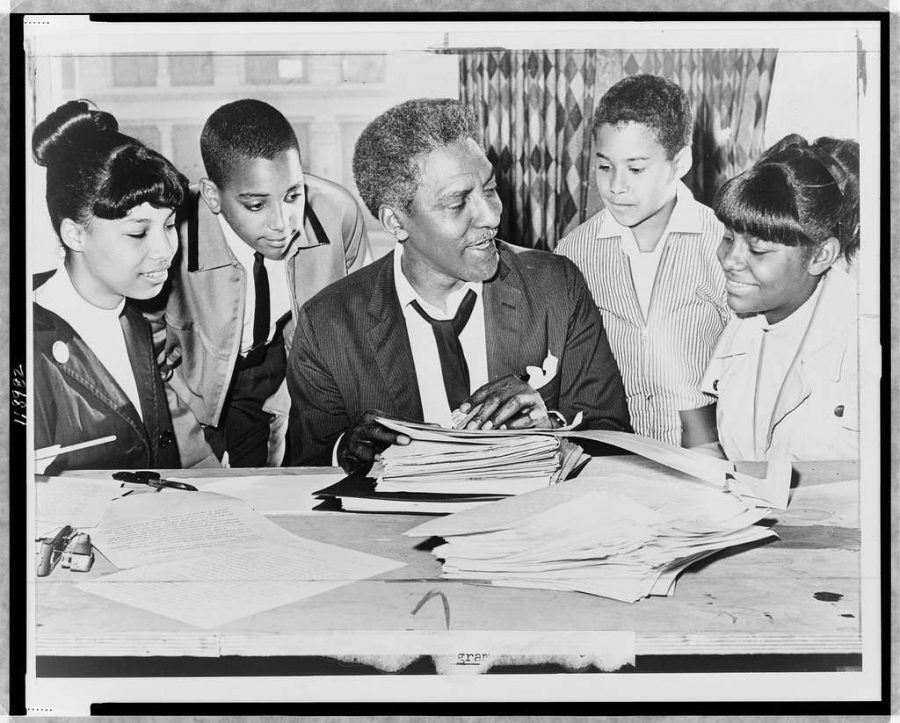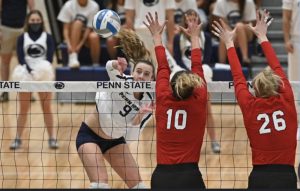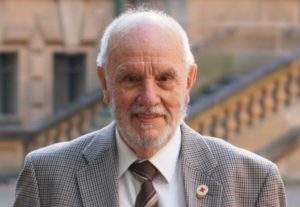Bayard Rustin: An Unsung Hero of The Civil Rights Movement
Bayard Rustin (center) speaking with (left to right) Carolyn Carter, Cecil Carter, Kurt Levister, and Kathy Ross, before demonstration
February 12, 2021
Bayard Rustin (1912-1987) was an essential figure in the Civil Rights Movement. He was a skilled event organizer and strategist, excellent speaker and writer, and even a mentor to Martin Luther King Jr.. So why have so few people heard his name?
In addition to being a black man fighting for civil rights, Rustin was also gay, a pacifist, and an ex-communist. Many leaders of the movement were hesitant to have him on the front lines of their cause, as they feared these things may make him a liability. As a result, Rustin worked from the shadows, but his participation was no less necessary because of it.
Rustin frequently spoke about nonviolent civil disobedience. He protested against segregation in the army during World War II, and against the war in general. In 1944, he was arrested and sentenced to federal prison for three years because of his refusal to participate in the Civilian Public Service, an organization to help the war effort, and his violation of the Selective Service Act.
Martin Luther King Jr. relied heavily on Rustin’s expertise, as King had little experience organizing events. Rustin also ghostwrote drafts of articles and book chapters for King. He worked with other activists, such as Ella Baker and Stanley Levinson, to get the 1955 bus boycott national attention. By 1963, he had become the lead organizer of the March on Washington.
Even after Congress Passed the Voting Rights Act in 1965, Rustin continued to write articles and speak out about all that still had to be done. Moreover, in the last years of his life, he also got involved in the gay rights movement and, despite the many strikes against him socially, he made a major difference for both the African-American and LGBTQ+ communities.






